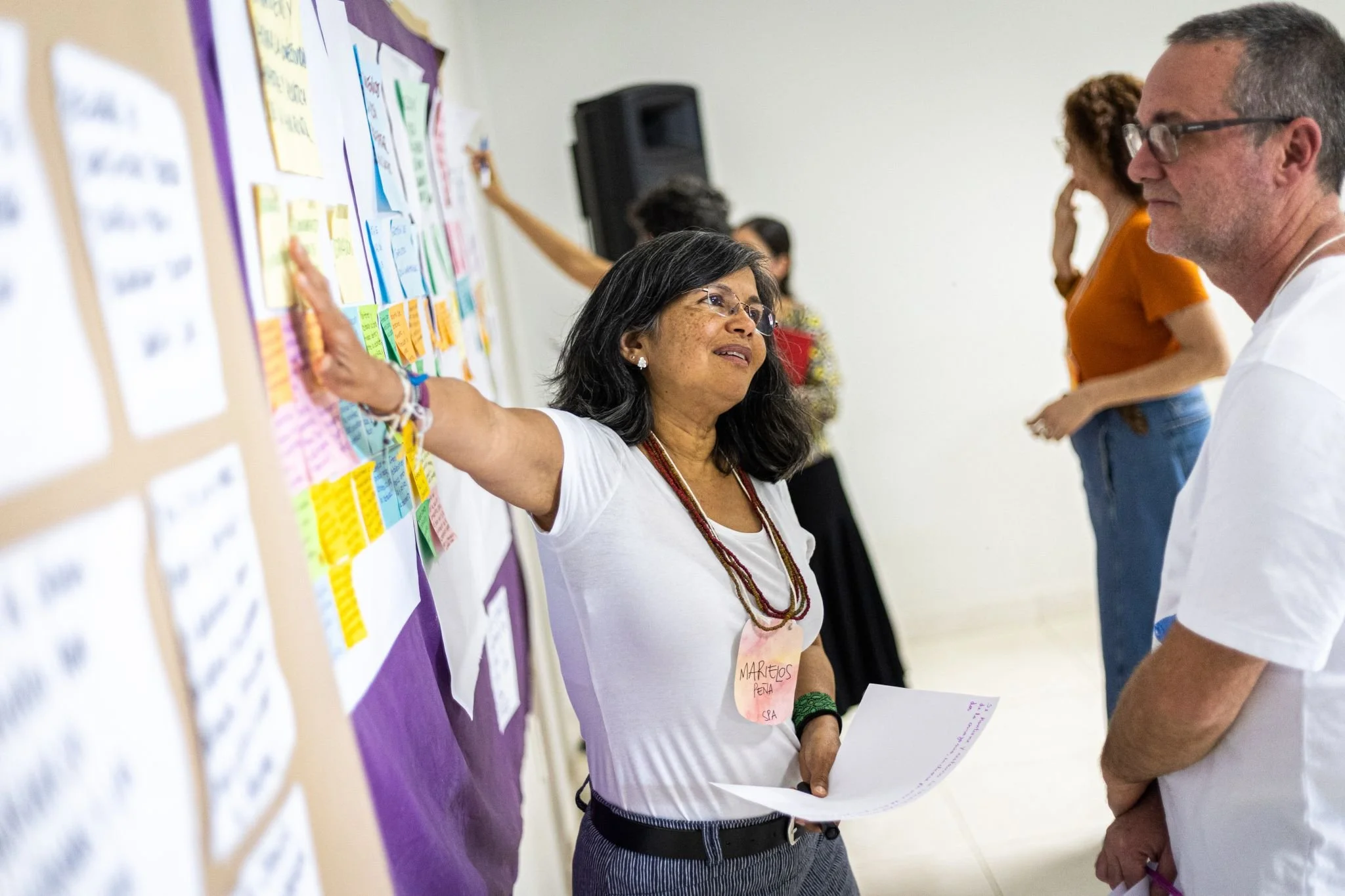The SPA makes regional connections at “Amazonian Network of Networks” Meeting
From May 19 to May 21 2025, thirteen different Amazonian networks that focus on science, conservation, and advocacy came together to collaborate on key recommendations for the governments of Amazon countries. The Science Panel for the Amazon (SPA) participated in the “Amazonian Network of Networks” workshop, hosted in Brasilia by the Instituto PanAmazonico (IPA). The SPA was represented by co-chair Marielos Peña Claros, who was one of approximately 45 participants.
The networks in attendance together represented over 450 different organizations across a wide variety of topics. Science-based policy, university engagement, Indigenous peoples’ advocacy, and socio-bioeconomy were just some of the key topic areas the networks covered.
Participating networks included the SPA, Red Amazónica de Información Socioambiental Georreferenciada (RAISG), GTI PIACI, Rede Eclesial Pan-Amazônica REPAM-Brasil, Amazon Underworld, Aguas Amazónicas, IRI-Colombia, UNAMAZ, Red Panamazónica de Bioeconomia, Foro Social Panamazónico, Asamblea Mundial por la Amazonía, Alianza NorAmazónica, and Escucha la Amazonía.
The overarching goal of the conference was to agree on five key recommendations that civil society organizations could present directly to the leaders of Amazonian countries at the Amazon Presidents’ Summit, scheduled to take place in Bogotá, Colombia, on August 22. The goal is foster collaboration, advancing a unified message on climate mitigation ahead of COP30, to be held in November in Belém. This alliance would take shape through the adoption of a Pan-Amazonian Pact at the summit, signaling a high-level political commitment to the connectivity of the Amazon region.
The different networks provided recommendations, which the IPA team used to define five impact points. These impact points were presented, discussed, and agreed upon by the participants. Working groups were formed with one representative from each network. “Working together allowed us to exchange knowledge and experience, and to narrow down our impact point using a diversity of perspectives,” highlighted Marielos. The priorities during the workshop were to ensure that each recommendation included all voices, was politically timely and essential, and was measurable in terms of substantive change. The measurability of each recommendation is key; one of the last steps in finalizing the recommendations was determining key indicators to track success.
While the recommendations will be formally published in August, the group presented the first draft to Martin von Hildebrand, Secretary General of the Amazon Cooperation Treaty Organization (ACTO). Von Hildebrand and the team at ACTO were receptive to the recommendations work, which will be further elaborated before they are presented officially. The participants' five messages:
The ecosystemic and sociocultural connectivity of the Amazon is maintained and restored.
The Amazonian states prioritize joint action to prevent and manage socio-environmental and illicit cross-border conflicts, ensuring public safety.
The Amazon countries adopt an enabling strategy for the development of the socio-bioeconomy.
Climate finance in the Amazon must include a rights-based approach and guarantee fair and equitable access to resources.
Amazonian regional cooperation guarantees a rights-based approach and citizen participation, and promotes the coordination of regulatory frameworks for the effective implementation of the Belém Declaration.
Next steps for the Network of Networks include engagement with the Colombian government regarding the 5th Amazon Presidents’ Summit and the “Diálogos Amazónicos” (Amazon Dialogues), a key advocacy action to promote the five impact points and Pan-Amazonian Pact. The working groups formed during this first workshop will continue advancing the pan-Amazon advocacy strategy on the path to the 5th Amazon Presidents’ Summit and COP30, aiming to participate in these spaces with a unified voice. The Network of Networks calls on Amazonian states to act as a decisive, coherent regional political bloc in implementing the Belém Declaration and preventing the Amazon biome from reaching a point of no return. The Science Panel for the Amazon will continue to participate in these dialogues.
Photographs courtesy of the Panamazonian Institute (IPA).




